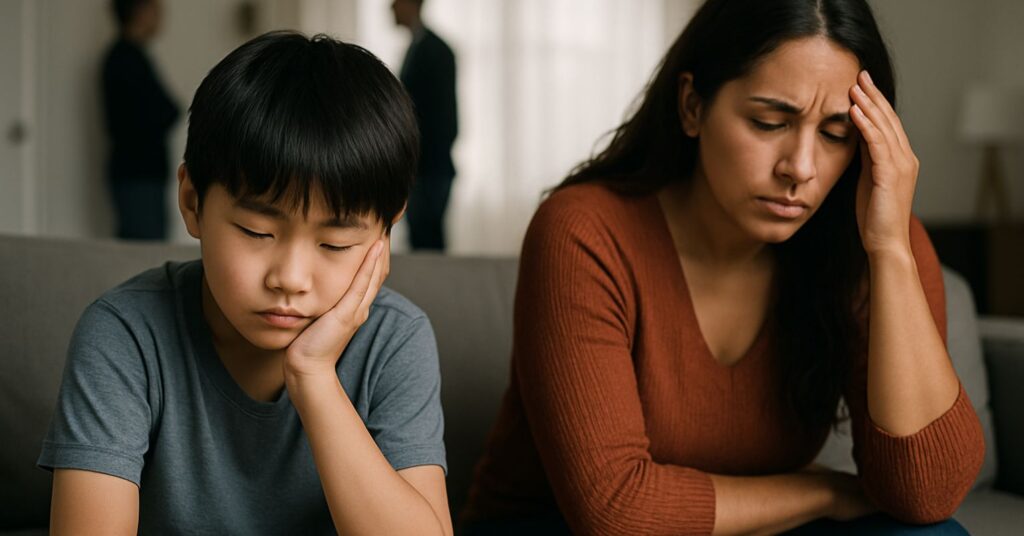When it comes to divorce, it’s often seen as a new beginning for the adults involved, signaling a move towards a healthier and more peaceful life. However, for both young and adult children, divorce isn’t just the end of their parents’ marriage. It’s a loss that fundamentally alters their emotional well-being, trust, sense of self, and relationships.
The Impact on Minor Children’s Emotional Well-Being
Divorce can have a significant emotional impact on children when their parents split up while they are still minors. They lose the familiar daily routine and security of a two-parent household, leading to feelings of guilt, confusion, fear, and self-blame.
Children’s brains are still developing during this time, including the areas that manage emotions and process complex situations. They may struggle to articulate or comprehend their emotions, and any changes in living arrangements, schools, or routines can exacerbate their stress and sense of instability.
Studies classify divorce as an Adverse Childhood Experience (ACE), which can have long-lasting effects on a child’s emotional and physical well-being. Parental divorce can increase the likelihood of anxiety, depression, academic challenges, behavioral issues, and difficulties with trust. While therapy and emotional support can be beneficial, the emotional scars may persist.
The Often-Overlooked Impact on Adult Children
There’s a misconception that adult children are not significantly affected by their parents’ divorce, especially if they are no longer minors. However, the emotional toll on adult children can be just as profound, even if they don’t experience the same disruptions as younger children.
Adult children may question the authenticity of their family history and grapple with feelings of betrayal or disillusionment. This emotional upheaval can impact their sense of identity and ability to trust in relationships.
They may find themselves caught in their parents’ conflicts, being asked to mediate or emotionally support one or both parents, which can be overwhelming. Adult children may also take on logistical responsibilities, such as helping a parent move or organizing family events, all while coping with their own sense of loss.
Unlike minors, adult children often lack societal or professional support, with their grief sometimes being dismissed by others. Comments like “You’re an adult now, so it shouldn’t affect you as much” can leave them feeling isolated in their emotional turmoil.
The Long-Term Emotional Impact of Divorce
Regardless of their age, children of divorce often carry the emotional burden into their own relationships. They may struggle with commitment, fear conflict, or worry about repeating their parents’ mistakes.
Events like birthdays, weddings, and holidays can become emotionally charged without unified parental support. If there was infidelity, prolonged legal battles, or ongoing conflict, the emotional toll can be even greater and harder to overcome.
Healing Requires Time, Support, and Intention
While divorce may be necessary for the adults, it’s essential to acknowledge and address the emotional needs of their children, regardless of age.
Recognizing the grief and validating the pain experienced by children during and after divorce is crucial. Healing may involve therapy, open communication, and setting healthy boundaries.
We must move away from the idea that parental divorce is a temporary disruption. For both minor and adult children, it marks a significant turning point that can have lasting effects for years to come.
Parental divorce is not just a legal event; it’s a deeply emotional experience that can reshape the lives of children at any age. Minor children may face immediate emotional challenges, while adult children often grapple with hidden pain and grief. All children impacted by parental divorce deserve acknowledgment, support, and understanding.
By recognizing the enduring impact of divorce and providing compassionate, trauma-informed care, we can help children of all ages heal and move forward with resilience and hope.
© 2025 Carol R. Hughes, Ph.D., LMFT

